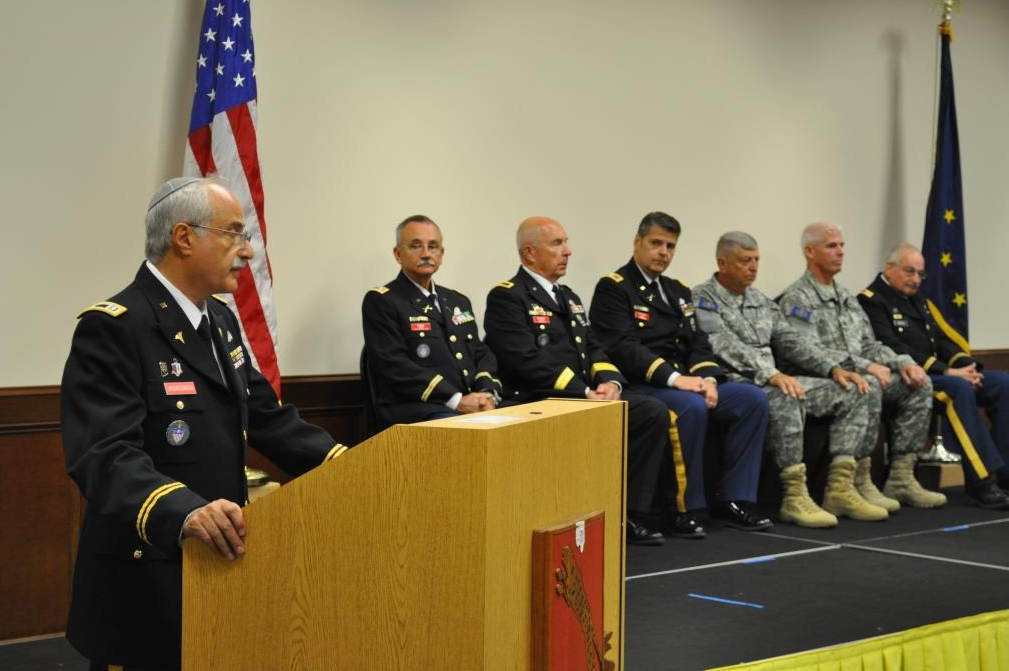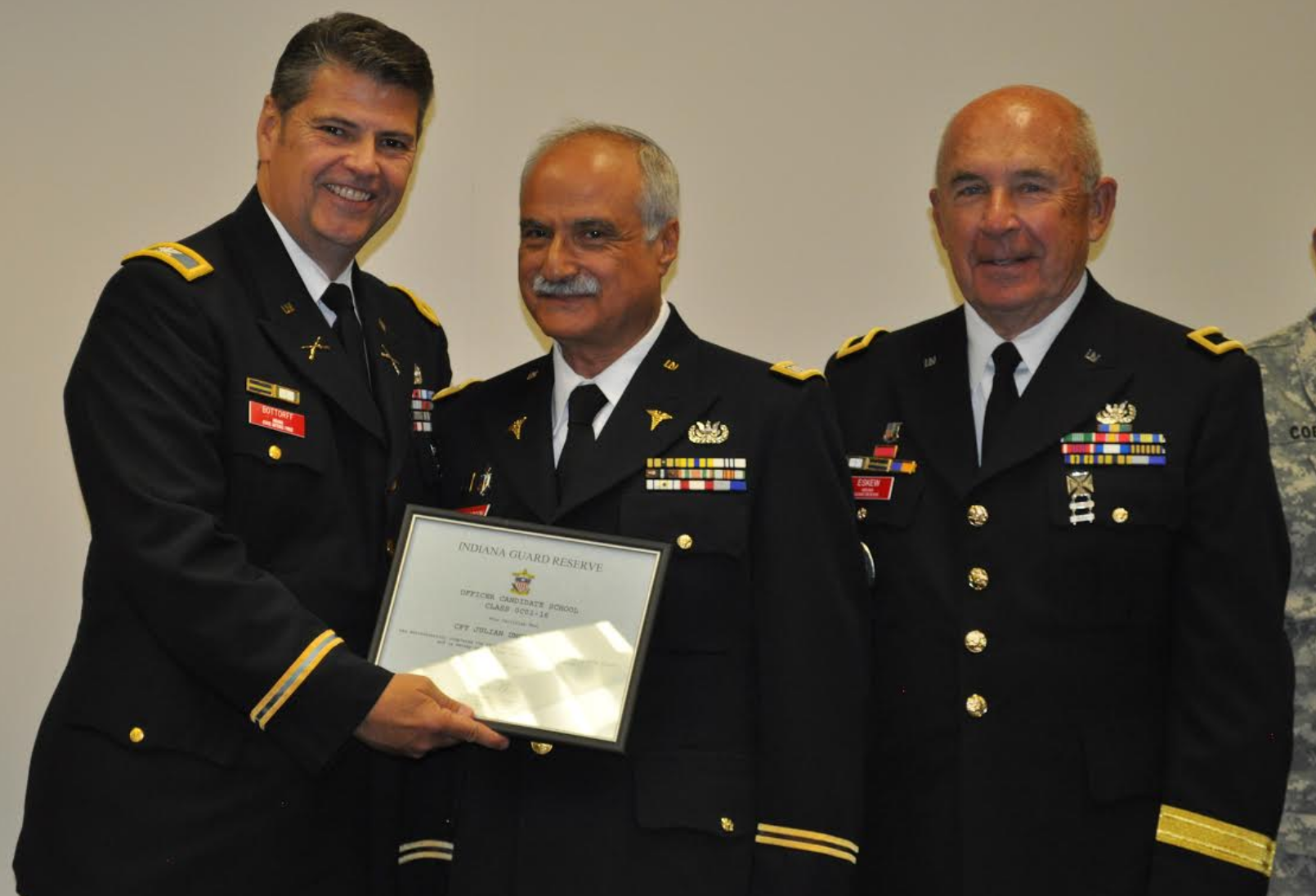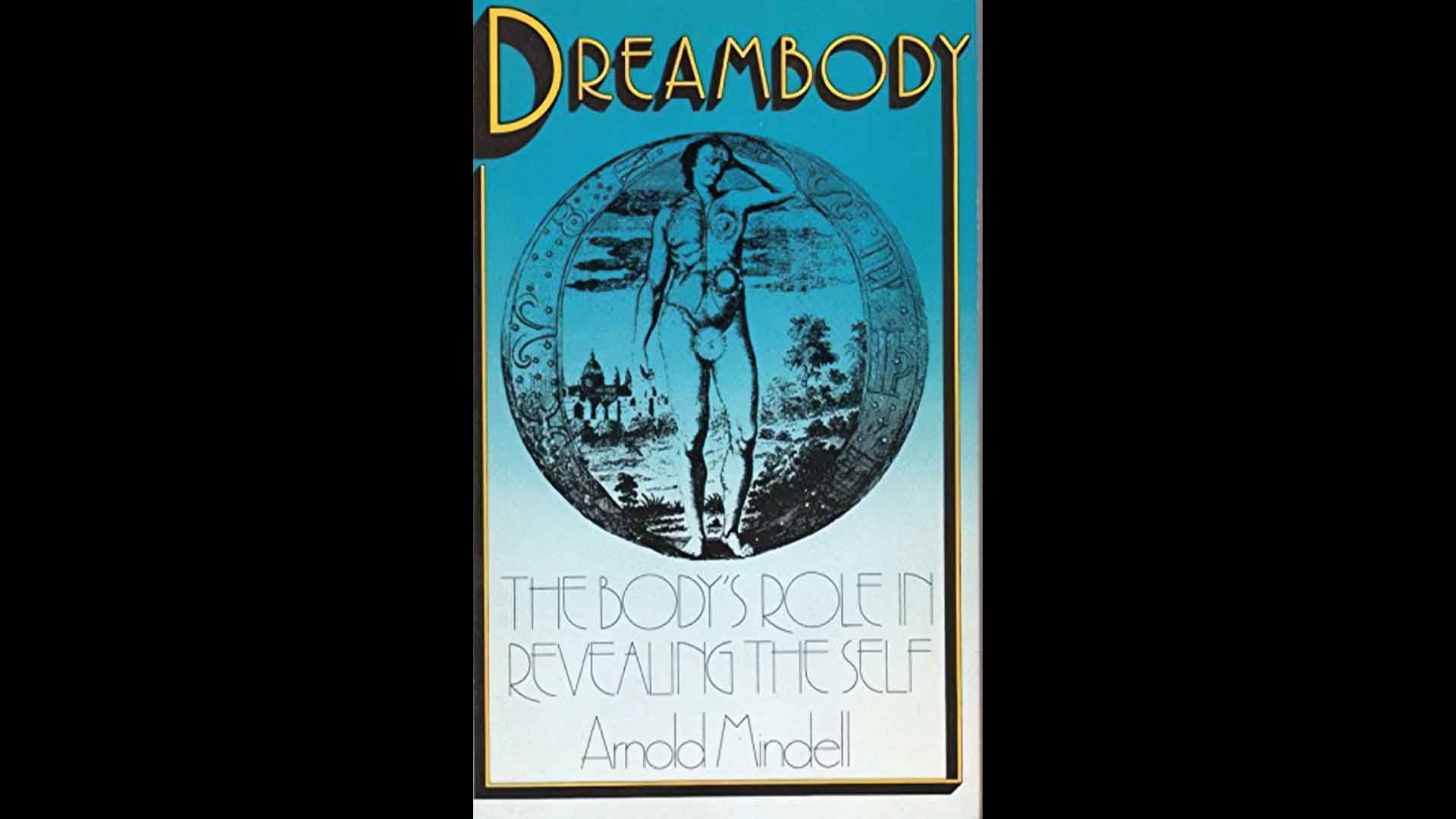Commencement Address: Harrison College for Health Sciences
Obituary For Mr. Ernest Farkas of Chicago
Graduation From Officer Training
Migraine
In this essay, Dr. Julian Ungar-Sargon outlines the frustrating condition of migraine headaches and reviews some of the treatments available to patients for treating it.
Ethics Of Command In Morally Dubious Situations
The Ethics of Command In Morally Dubious Situations
In this essay, Dr. Julian Ungar-Sargon examines the question of ethics in military conflict. He looks at three historic examples and explains the difference between the "soldier-killer" and the "warrior".
Speech for Alon Ribak's Auf Ruf
Speech for Alon Ribak's Auf Ruf
Dr. Julian Ungar-Sargon offers words of blessing to his nephew, a war hero, a week before his wedding.
Musings on the Nightingale And the Vale of Soul-Making
Musings on the Nightingale And the Vale of Soul-Making
In this wide-ranging treatment, Dr. Julian Ungar-Sargon reflects on the multiple meanings that the Nightingale has taken across different genres of literature.
Flirting: An Obsession
In this essay, following a series of excerpted references, Dr. Julian Ungar-Sargon meditates on the nature and origins of flirting.
Hesped for My Father In-Law Rav Gettinger
Hesped for My Father In-Law Rav Gettinger
In this essay, Dr. Julian Ungar-Sargon eulogizes his departed father in-law, the great Rabbi Emanuel Gettinger.
The Water Castle: A Study In Obsession
In this essay, Dr. Julian Ungar-Sargon offers a unique commentary on a classic Breslov tale.
Re-Imagining Illness
In this essay, Dr. Julian Ungar-Sargon discusses the "dreambody" concept introduced by Arnold Mindel. He ruminates on its relevance for the modern physician and talks about his own unique approach to the treatment of illness.
The Divine Feminine III
In this essay, Dr. Julian Ungar-Sargon further develops the themes of the previous two parts of this series by exploring the manner in which Schechina consciousness might be applied to his own inner spiritual landscape.
The Divine Feminine II
In this essay, Dr. Julian Ungar-Sargon continues to develop the themes he introduced in "The Divine Feminine". He tries to reimagine a relationship with the Divine in the face of man's horrific inhumanity to man over the past century.
The Divine Feminine
Dr. Julian Ungar-Sargon talks about a trip to his ancestral India in this cross-cultural, interdisciplinary look at the feminine attributes of the divine.
Jonathan and Allenby: A Tale of Two Tricksters
Jonathan and Allenby: A Tale of Two Tricksters
In this illuminating essay, Dr. Julian Ungar-Sargon explores a little known episode in the history of British Mandate Palestine and discusses its archetypal resonance.
Rumi and Midrash-Physician as Healer or Destroyer
Rumi and Midrash-Physician as Healer or Destroyer
In this fascinating cross-cultural survey, Dr. Julian Ungar-Sargon brings Rumi, the Midrassh, and the Ishbitzer Rebbe to bear on the question of the role of the physician.
Answering Answer to Job: Jung, Job and Buber
Answering Answer to Job: Jung, Job and Buber
In this compelling essay, Dr. Julian Ungar-Sargon moves past Jung with the help of Martin Buber.
Chronic Pain and Spirituality
Dr. Julian Ungar-Sargon walks through the five spiritual interpretations of pain: Pain as punishment, as opportunity for transcendence, as test or competition, as atonement, and as gaining or retaining control. He then goes on to describe the difference between pain and suffering and elucidates the spiritual content of the latter.
Choreographer Pina Bausch and Incarnation
Choreographer Pina Bausch and Incarnation
Dr. Julian Ungar-Sargon explores the mysticism of dance in this fascinating essay on Pina Bausch.

























